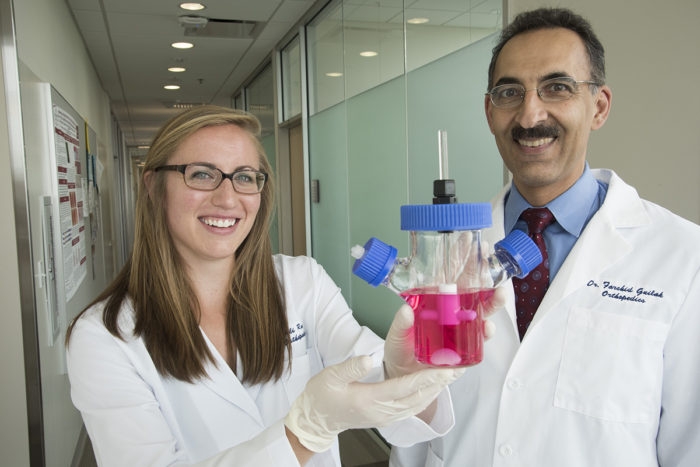Medical device and MedTech insights, news, tips and more
Cartilage grown from stem cells could replace hip implants
July 25, 2016

Researchers from the Washington University School of Medicine in St. Louis and Cytex Therapeutics have found a way to program stem cells to grow new cartilage on a 3-D template of the ball of a hip joint. This cartilage releases anti-inflammatory molecules that help fend off new occurrences of arthritis.
This new technology could result in an alternative to traditional h ip replacement surgery and could eliminate the need for joint replacement surgery in some patients.
ip replacement surgery and could eliminate the need for joint replacement surgery in some patients.
“We’ve developed a way to resurface an arthritic joint using a patient’s own stem cells to grow new cartilage, combined with gene therapy to release anti-inflammatory molecules to keep arthritis at bay,” said Farshid Guilak, professor of orthopedic surgery at Washington University, in a statement. “Our hope is to prevent, or at least delay, a standard metal and plastic prosthetic joint replacement.”
The cartilage is made with the patient’s own stem cells taken from fat beneath the skin. A 3-D, biodegradable synthetic scaffold is molded into the shape of the patient’s joint. It is then covered with the cartilage and implanted onto the surface of an arthritic hip. This process helps alleviate arthritic pain and could delay or eliminate the need for hip replacement surgery.
Using gene therapy, developers were able to place anti-inflammatory molecules in the hip to fend off the reoccurrence of arthritis. As inflammatory molecules rise, cartilage in joints can be destroyed and pain increases, which this gene therapy can help deter.
Read Full Article – Source: Cartilage grown from stem cells could replace hip implants | FierceBiotech
Photos courtesy of Washington University School of Medicine in St. Louis
